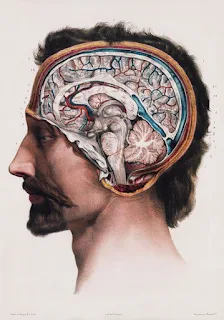How does a human Brain work?
The human brain is a complex and sophisticated organ that controls all aspects of our body and mind. It is made up of approximately 86 billion neurons, which communicate with each other through electrical and chemical signals.
The brain is responsible for a wide range of functions, including:
Sensory processing: The brain receives information from our senses, such as sight, sound, touch, taste, and smell, and processes this information to create our perception of the world around us.
Motor control: The brain controls our movements, allowing us to walk, talk, and perform complex tasks.
Thinking and decision-making: The brain processes information, makes decisions, and forms memories based on our experiences.
Emotion and motivation: The brain plays a key role in regulating our emotions and motivating our behavior.
Homeostasis: The brain regulates our internal environment, maintaining a stable balance of factors such as temperature, blood pressure, and glucose levels.
The brain is divided into different regions, each with its own specialized functions. For example, the frontal lobe is responsible for decision-making and problem-solving, while the temporal lobe is involved in processing auditory information and forming memories.
Communication between different parts of the brain is facilitated by networks of neurons and neurotransmitters, which transmit information through synapses. The brain also has the ability to adapt and change in response to experiences, a process known as neuroplasticity.
While there is still much to learn about how the human brain works, ongoing research is helping to shed light on the intricate workings of this remarkable organ.



Comments
Post a Comment